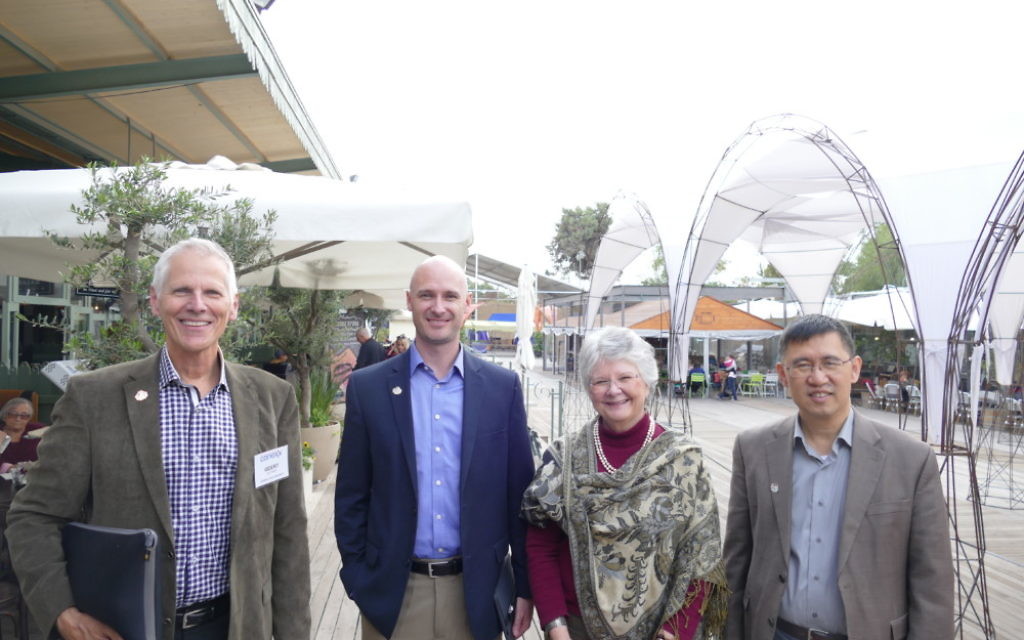Medical Innovation Opens GSU Eyes in Israel

Four high-ranking Georgia State University faculty members got a close look at Israeli medical innovation as part of the 2016 Conexx Israel Business Expedition Nov. 5 to 10.
It was the first visit to Israel for the neuroscientist, immunologist and two biochemists.
Conexx delegation member Jorge Fernandez, the vice president of global commerce at the Metro Atlanta Chamber, invited Georgia State President Mark Becker to send four faculty members on the trip. Eventually composing the group were Julia Hilliard, Binghe Wang, Geert de Vries and Timothy Denning.
Get The AJT Newsletter by email and never miss our top stories Free Sign Up

Each came away with a completely different view on medical innovation in Israel.
“I didn’t know what to expect, quite honestly,” said Denning, an associate professor at the Center for Inflammation, Immunity & Infection at GSU. “Since I got here, I’ve just been so impressed. I feel there’s a common thread through the culture in Israel of education, of striving for excellence and of trying to better humanity. It’s a common thread that I don’t often see as much in the United States. That’s something I found honestly quite moving and profoundly impactful.”
Medical highlights of the trip included meetings with the technology transfer companies of Ben-Gurion University, Hebrew University and the Weizmann Institute, as well as visits to the Rambam Medical Center in Haifa, the Trendlines medical incubator in the Galilee and the Israel National Center for Personalized Medicine at the Weizmann Institute.
Of particular interest to the delegation from Georgia State was an opportunity to witness the transfer of knowledge and scientific research from Israeli universities into ventures that have a commercial interest.

“I was very impressed with the incubators that are set up at the universities in Israel,” said Wang, regents professor and associate dean for natural and computational sciences at GSU. “Instead of only giving out money to small companies, they make sure there is the infrastructure to support them and help move the innovation from academic labs into the market. By having that level of support, it helps to increase the probability of success.”
The four faculty members work in different departments at Georgia State and used the many meetings and long bus rides during the trip to get better acquainted. The have scheduled a meeting to discuss findings, ideas and takeaways from the trip with Georgia State higher-ups.
De Vries, the director of the Neuroscience Institute at GSU, said he sees an opportunity for the university to set up a medical incubator modeled after Israeli universities in the area Turner Field occupies now that GSU’s plan to redevelop the area has been approved.
Denning, who specializes in inflammatory bowel disease research, was invited to speak about his research at the Weizmann Institute and said he values the academic connections he made in Israel.
Hillard, director of GSU’s Viral Immunology Center, participated in a women’s panel at the Rambam Medical Center that discussed ways to get women more involved in science and medicine. She told the AJT she is interested in improving international study options in Israel for Georgia State students.
In addition to academic connections established on the trip, Wang said he is excited about the general connections he made with the American Conexx delegation and Israeli business professionals.




comments